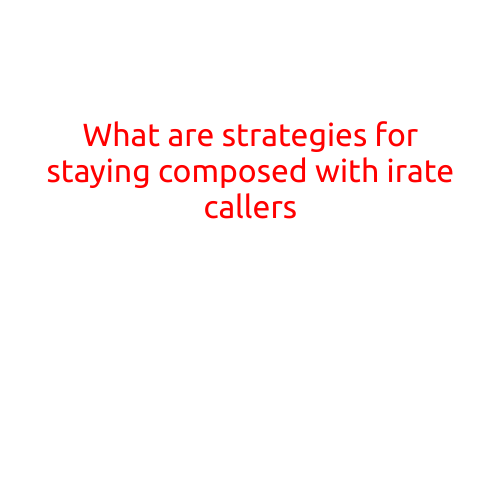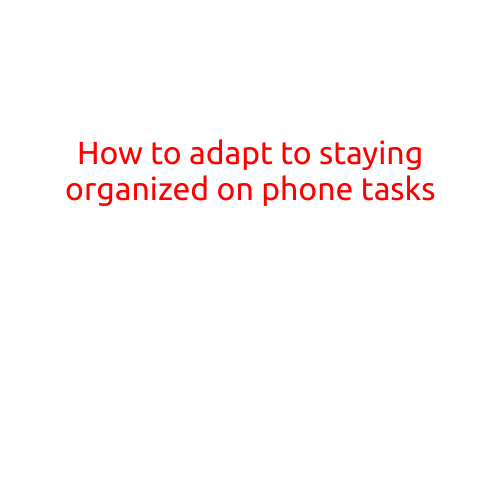
What are Strategies for Staying Composed with Irate Callers?
When you’re on the phone, it’s easy to get caught up in the emotions of the moment. Whether you’re dealing with a frustrated customer, a demanding supplier, or an irate colleague, staying calm and composed can be a challenge. However, remaining composed is crucial for resolving issues efficiently, maintaining a positive reputation, and retaining customers.
So, how can you stay composed when dealing with irate callers? Here are some effective strategies to help you keep your cool:
1. Prepare for the Call
Before taking a call from an irate caller, take a few deep breaths, and mentally prepare yourself to stay calm. Consider reviewing the issue at hand, gathering any necessary information, and having a clear plan for resolving the problem.
2. Stay Non-Defensive
When an irate caller starts complaining, it’s natural to feel defensive. However, staying non-defensive is key to resolving the issue. Avoid getting personal, and focus on finding a solution to the problem. Use phrases like “I understand your frustration” or “I’m here to help” to show empathy and understanding.
3. Listen Actively
Listening actively is essential for staying composed and resolving issues effectively. Pay attention to what the caller is saying, ask clarifying questions, and show that you’re engaged in the conversation. Avoid interrupting, and let the caller finish speaking before responding.
4. Use Empathy and Acknowledge Their Feelings
Irate callers often feel unheard or frustrated. Show empathy by acknowledging their feelings and validating their concerns. Use phrases like “I can understand why you would feel that way” or “I apologize for the inconvenience you’ve experienced.”
5. Take a Break if Necessary
If the call becomes too heated or emotional, it’s okay to take a break and come back to the conversation later. Sometimes, taking a step back and regrouping can help you approach the conversation with a clearer head and a more level demeanor.
6. Focus on Solutions, Not Problems
Instead of dwelling on the problem at hand, focus on finding a solution. Ask the caller what they would like to see happen to resolve the issue, and work together to find a mutually beneficial outcome.
7. Stay Calm and Professional
Maintain a calm and professional tone throughout the conversation. Avoid raising your voice, using sarcasm, or getting overly agitated. Instead, stay polite, respectful, and composed, even in the face of adversity.
8. Offer a Solution or Alternative
When an irate caller is frustrated or upset, they often feel like they’re being ignored or dismissed. Offer a solution or alternative to show that you’re committed to resolving the issue. This might be offering a discount, a refund, or a compromise of some kind.
9. Follow Up
After the call, follow up with the caller to ensure that the issue has been resolved to their satisfaction. Send an email, make a note in their file, or follow up with a phone call to show that you’re committed to their satisfaction.
10. Practice Stress-Reducing Techniques
Finally, take care of yourself before and after the call. Practice stress-reducing techniques like meditation, deep breathing, or exercise to help manage your emotions and stay composed in high-pressure situations.
By following these strategies, you’ll be better equipped to stay composed and resolved when dealing with irate callers. Remember, staying calm and professional is crucial for maintaining a positive reputation, resolving issues efficiently, and retaining customers.





